Tazza: Episode 1
by javabeans
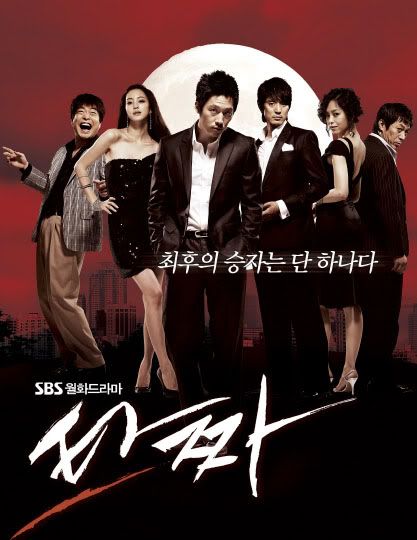
You know, I fully expected to dislike Tazza. I didn’t have many expectations, and I doubted that the drama version would be able to effectively capture what made the film version such a hit — I imagined it would be what you might expect if you had to cut down The Sopranos to air on network TV during the holidays. It would be a watered-down version at best.
And it is, for sure. Only one episode in (they only aired one last week), it’s a little too early to make predictions, particularly when much of the episode was spent in flashback. But although I started out the episode perilously near boredom, somewhere about halfway through, things started clicking for me dramatically, and I’ll admit I enjoyed it overall.
SONG OF THE DAY
Lee Ssang – “야바위” (Swindle). This song is actually from the OST of the film version of Tazza.
[ Download ]
Audio clip: Adobe Flash Player (version 9 or above) is required to play this audio clip. Download the latest version here. You also need to have JavaScript enabled in your browser.
CHARACTERS & BACKGROUND
Jang Hyuk plays Go-ni, the role originated by Jo Seung-woo in the film. He’s a master tazza — a cardsharp, a high-rolling gamester — who’s got a name for (almost) always winning and pissing people off with his slick attitude. He reads people with uncanny insight — gambling’s not about luck for him, it’s a combination of skill and cojones the size of a small country.
Because we spend a lot of the time in Go-ni’s childhood, we only catch a glimpse of Han Ye-seul and Kim Min-joon‘s characters (and none yet of Madam Jung). Han’s character gets more screen time in her younger form, since her Nan-sook bonds with young Go-ni back in their hometown as children. Kim plays Young-min, who seems poised to become Go-ni’s best bud when they first meet as young men; both are traveling a path off the straight and narrow and are headed straight for juvenile delinquency. Or maybe it’s young-adult delinquency; it’s hard to tell what age they’re supposed to be playing, although I’d peg them to be in their late teens.
EPISODE RECAP
High-stakes gambling game. Go-ni’s winning, and he’s winning big. His voiceover insights tell us that the other player has a bad poker face, and he can read him plainly. Go-ni has been irritating the man all game long, singing overly cheery tunes and generally acting like a disrespectful upstart.
The man, pushed beyond prudence, finally gets a hand he’s unwilling to back down from, and he raises the stakes on Go-ni, expecting him to fold. But Go-ni produces yet more money, betting something in the vicinity of a half million dollars.
Go-ni wins. The man sputters and sics his men on Go-ni to prevent him from leaving with the money. Just as Go-ni is about to be gutted with a switchblade, there’s a disturbance outside — a massive gang infilitration.
Using this distraction, Go-ni and his friend slip away and run while the crime boss’s gangsters prepare to fight the incoming gangsters. In a funny twist, the boss mentally prepares for attack, but looks on in bemused surprise when the incoming gangsters bypass his gang — and instead chase after Go-ni. Turns out they were there for Go-ni, not the boss.
So Go-ni and his friend run along the harbor (they’d been playing cards inside a boat), running first from one gang, and then the other. With no way out, Go-ni points to a scaffolding/tower and climbs up — obviously they have never seen a horror movie. You never climb UP!
At the top, Go-ni first throws his friend over the railing (it’s for his own good!) and then nervously prepares to jump. He does, and as he hits the water, he tells us one of his hard-earned life lessons: “I won’t get caught, and I won’t die, either. Stuff like luck? If heaven doesn’t give you any, you make your own.”
And then we jump back to the past, when Go-ni was a young boy and already a budding gambler. Here in his town, young-boy currency is in the form of marbles, which they bet against each other. Go-ni takes great pride in a particularly nice type of marble, the most difficult to obtain and of which he’s won the most in the town. (Marble-winning is sort of a point of pride; his neighborhood nemesis boasts of having a bunch of marbles, but Go-ni accuses him of merely buying them, not earning them.)
He also bonds — after a bad first encounter — with a new girl named Nan-sook, who’s moved recently from Seoul. She doesn’t really understand what the marble wars are all about, but Go-ni explains the basic principles and why they’re a big deal. After she helps him retrieve some (that she helped lose, by the way), he gives her one of the top-quality ones. Ever the girly-girl, Nan-sook comments that they’d make a pretty necklace. It’s puppy wuv.
Trouble comes in the form of a ruthless gambler, Ah-gwi, who takes advantage of Go-ni’s father. Although Dad regularly gambles with neighborhood men, the games are friendly and the stakes are small. This time, he falls into the gambling spiral of doom, because his family’s finances are not good and he hears of a high-stakes game to be played with unskilled gamblers. Thus sucked in to the lure of easy money, Go-ni’s father rustles up all the cash in the house (against his wife’s pleas not to) — and of course, he loses.
He begs for mercy and compassion, two things Ah-gwi doesn’t have. He and his gangsters push Dad aside, and driven by desperation, Dad tries to stop them from leaving — and instead is hit by their car. He’s thrown backward and his head strikes the pavement. The gambling crew is genuinely stunned, not having intended this, but as there are no witnesses, they leave the man twitching on the ground, still alive.
The injury is too dire, however, and Dad doesn’t have long left to live. The last message he imparts to Go-ni is to win — don’t take after his father, but make sure he’s always the one winning. (What a message to send a budding gamester, huh? He couldn’t just say, “Don’t lose in gambling by not playing”?) He begs his friend (Dae-ho) to take care of his family, and tells him the name of the man who did this.
Dae-ho recognizes the name Ah-gwi, and in a murderous fury barges into the guy’s gambling den. Turns out Dae-ho has a dark past of his own, having once been a top tazza himself — in fact, he and Ah-gwi had learned together, way back when. Apparently Ah-gwi spent time in jail, and Dae-ho had a part in turning him in. Afterward, Dae-ho had given up the life and wanted to move on, but Ah-gwi now challenges him to a game.
The two tazza masters go head-to-head, and we see both displaying their cheating and card-palming tricks. This isn’t a game of honor so much as it is a game of who can best the other. Finally, after Dae-ho folds hand after hand — all a part of his strategy — the two throw down an ultimate challenge to end this all. In this last hand (of cards), they’ll bet their own hands (literally) — the loser loses his.
Dae-ho wins, to Ah-gwi’s shock, because Ah-gwi had cheated and thought he’d won the hand for sure. Taking no pleasure in this, Dae-ho takes a swing of a knife and claims his hand. (Offscreen, thankfully.)
Meanwhile, Go-ni takes his father’s last words to heart. The marble wars escalate into conflict between him and his neighborhood nemesis until they strike upon a challenge — a blindfolded race. Go-ni’s victory seals the mantra (“Always win”) deep within him, as though proving that he will continue to do as his father asked.
Unfortunately, with his father gone, Go-ni and his mother must now move. As he’s leaving town, he spies Nan-sook walking to (from?) school, and gives her a parting gift: his precious bucket of marbles.
Go-ni tells Nan-sook he’d wanted to make a necklace of them, but hadn’t had the time. The next time they meet, he’ll make that necklace, he promises.
And then, they’re all grown up.
With Nan-sook in a school uniform, she must be in high school, but Go-ni looks way too old, so I’m not convinced they’re in the same time period. (They may be, and the actors just look too old.)
In any case, Nan-sook is still in the same town, and she’s even taken on the rural accent (she had none as a child, having moved from Seoul). Meanwhile, Go-ni’s getting into trouble, which I am sure is going to be a recurring issue for him. He squares off in a brawl at a pool house against Kim Min-joon’s character, Young-min.
The brawl’s actually pretty funny because Go-ni is operating on the misguided assumption that he’s the best fighter, and when that fails, the best flee-er. (Fleer? Guy who flees.) Both of these beliefs are proven false. Young-min is a superior fighter, so Go-ni jumps to the window and tries to make a suave exit — but Young-min points out that they’re on the third floor. Go-ni looks down and realizes this puts a crimp into his grand exit, and comes back inside to make his getaway via other means.
However, in so doing, he pisses off a third party, and all of a sudden, Go-ni and Young-min find themselves fighting side by side against the other thugs. (The enemy of my enemy is my friend?)
IMPRESSIONS
I have mixed feelings about Tazza. On one hand, there were parts that I found entertaining, and I think their attempts at humor do work, such as when Go-ni finds himself in situations where he’s over his head. (Jang Hyuk has a way with delivering his dry quips even when his character is facing pretty dire circumstances.)
The childhood years (alternately sweet and tragic) are completely different in tone from the adult years (fast-paced, glib). Despite the melodrama of the flashback scenes, however, I found them effective and moving, no doubt aided by solid acting all around, particularly young Go-ni and Dae-ho (actor Lee Ki-young is one of those actors you see everywhere — Gourmet, New Heart, Time of Dog and Wolf, Lovers, Goong S, Love Me Not, A Bittersweet Life — and he’s always solid).
I thought the emotion of the childhood segments was well-executed and the structuring similar to the beginning of East of Eden, but imo, Tazza accomplished the task much better than EOE. I found EOE to be overdone in all regards, while here we have just enough tragedy to inform Go-ni’s adult character without seeming so self-indulgently tragic. Also, the fabulous music scoring the childhood segments adds a lot to the scenes.
On the other hand, I think we spent way too much time in childhood, because we’ve all seen this stuff before and there’s not too much that’s actually necessary. They could have achieved a similar result had they been much more sparing with the flashbacks, giving us a better start to the series. At the end of Episode 1, I may know what Go-ni was like as a kid but I still have no idea what the actual plot of this drama is going to be. Other than the fact that we will have lots of fights, chase scenes, and gambling.
VERDICT: It was better than I thought it would be, but not good enough to make it an automatic yes. I’ll probably keep watching casually, but probably will not be recapping further episodes (I have to like it a lot more to commit to recaps, and I’m not there yet).
RELATED POSTS
Tags: first episodes, Han Ye-seul, Jang Hyuk, Kim Min-joon, Tazza



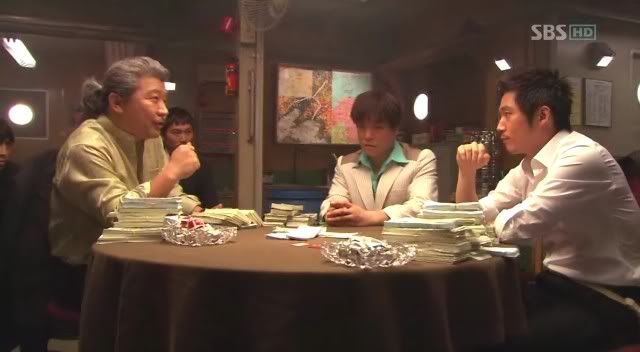
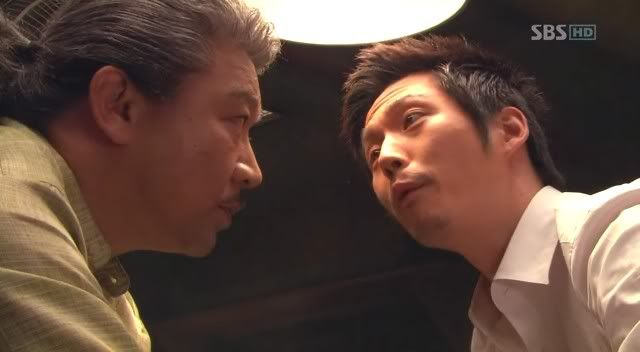
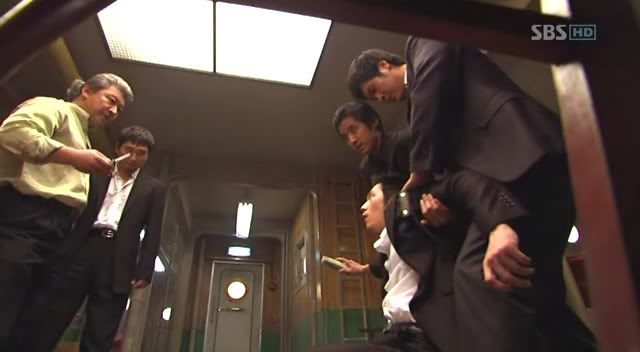




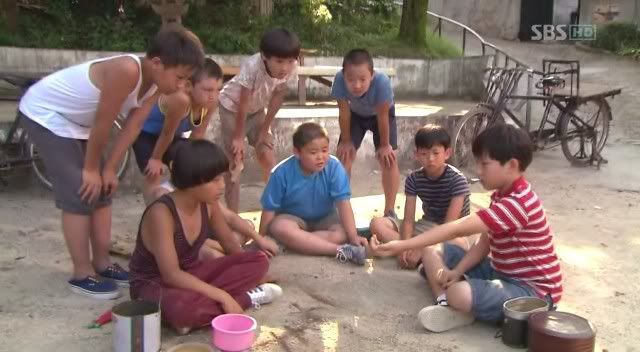
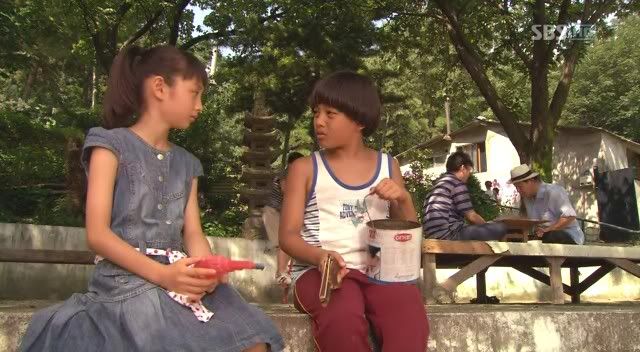

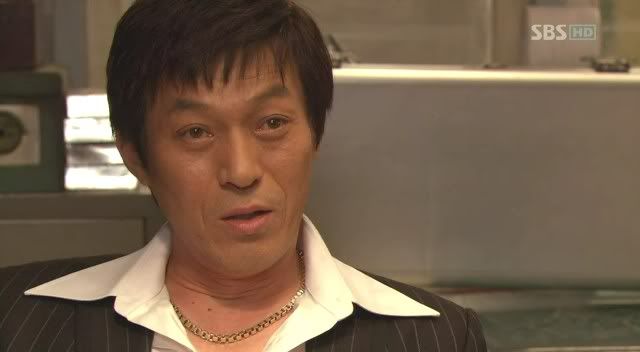
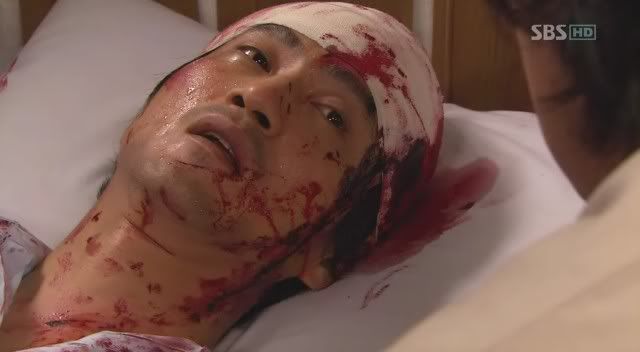
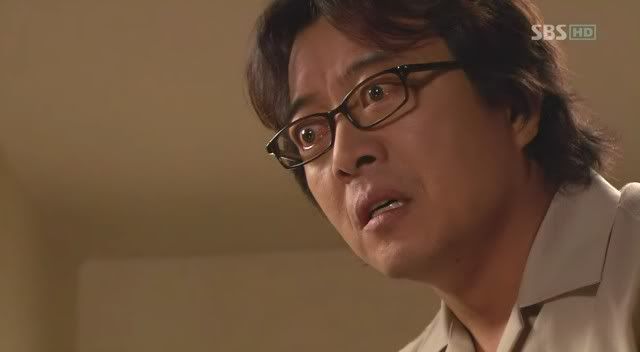
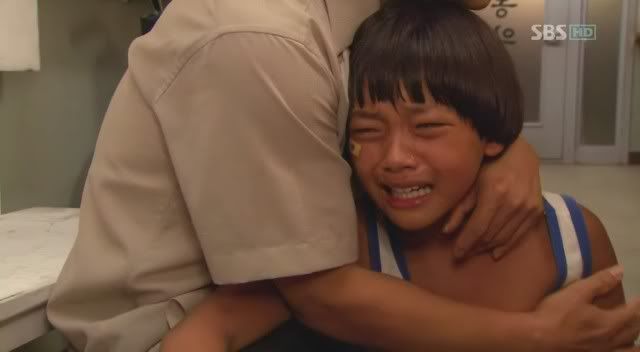
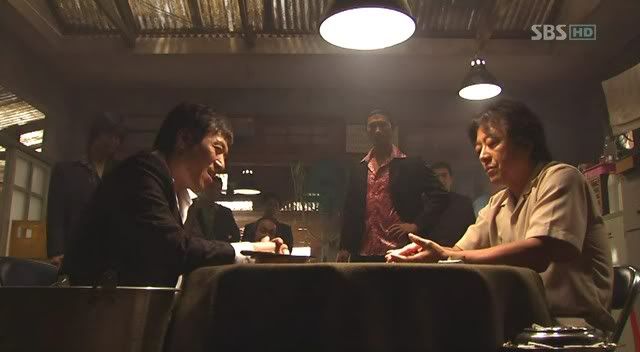
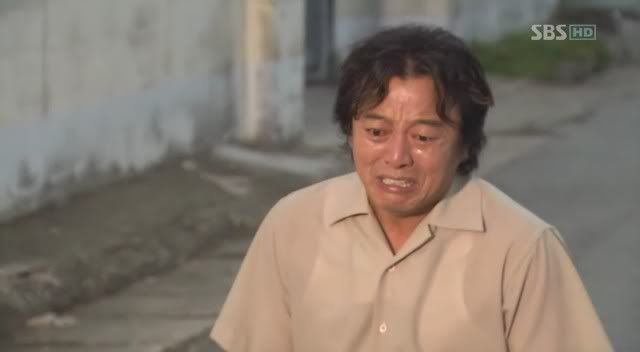
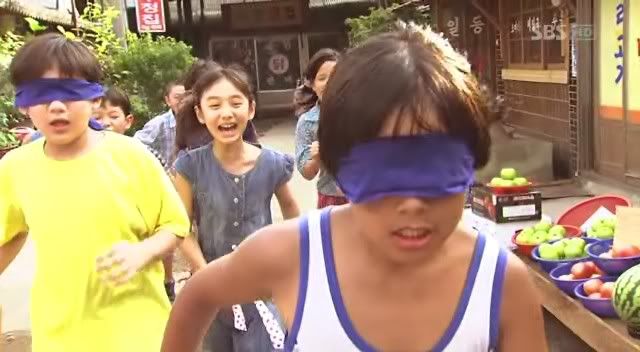
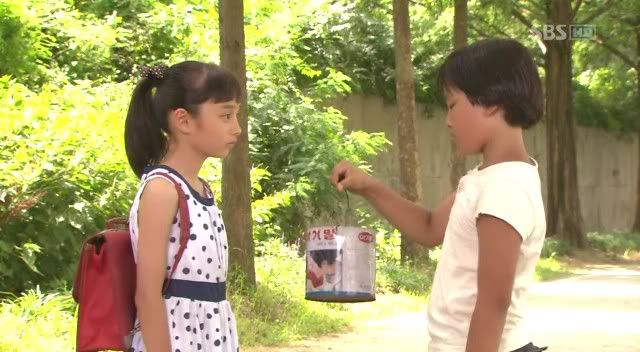
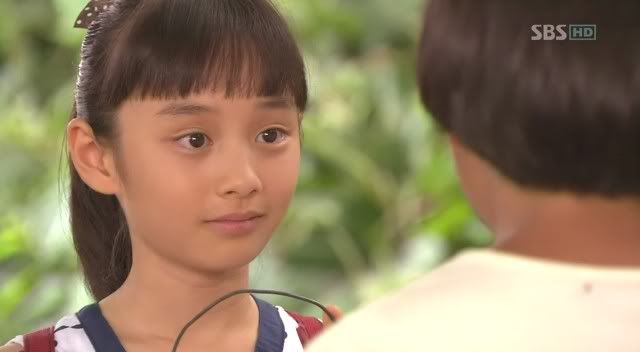
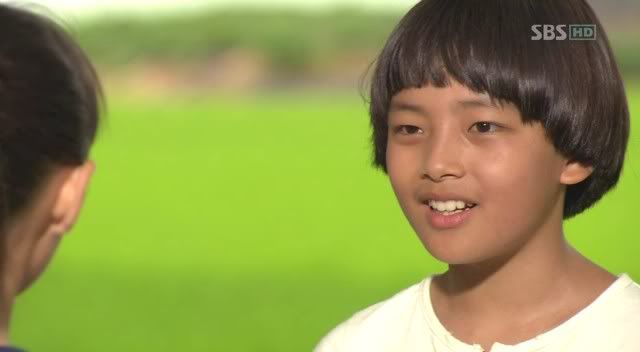
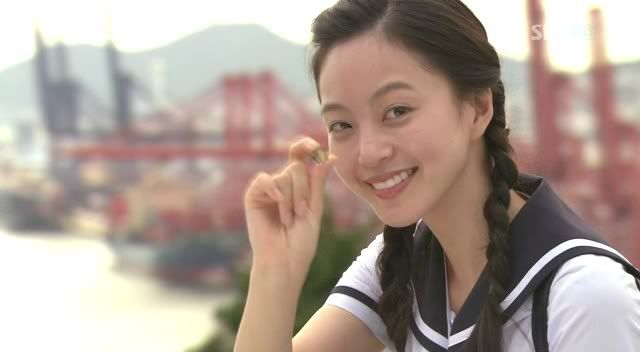

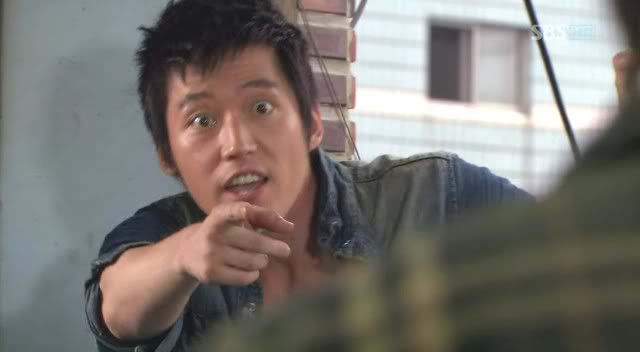

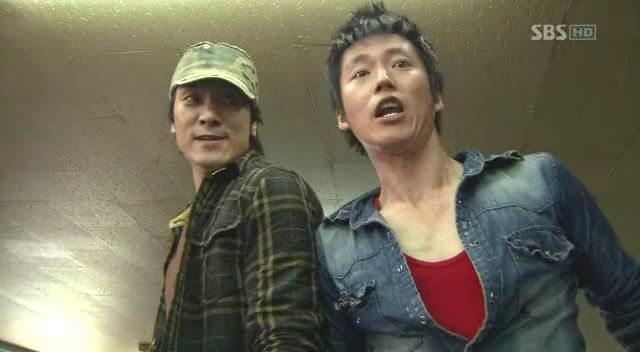

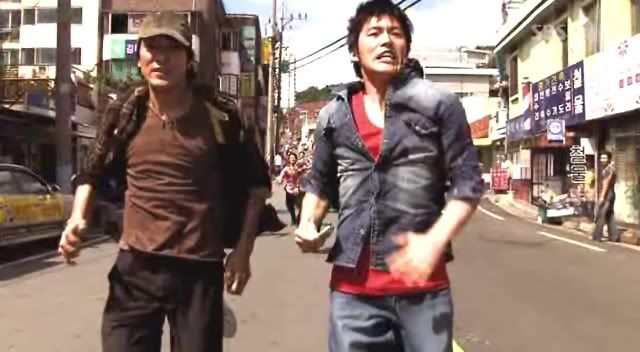
 Interview with Kim Yoo-jung
Interview with Kim Yoo-jung Hello Dramabeans series
Hello Dramabeans series
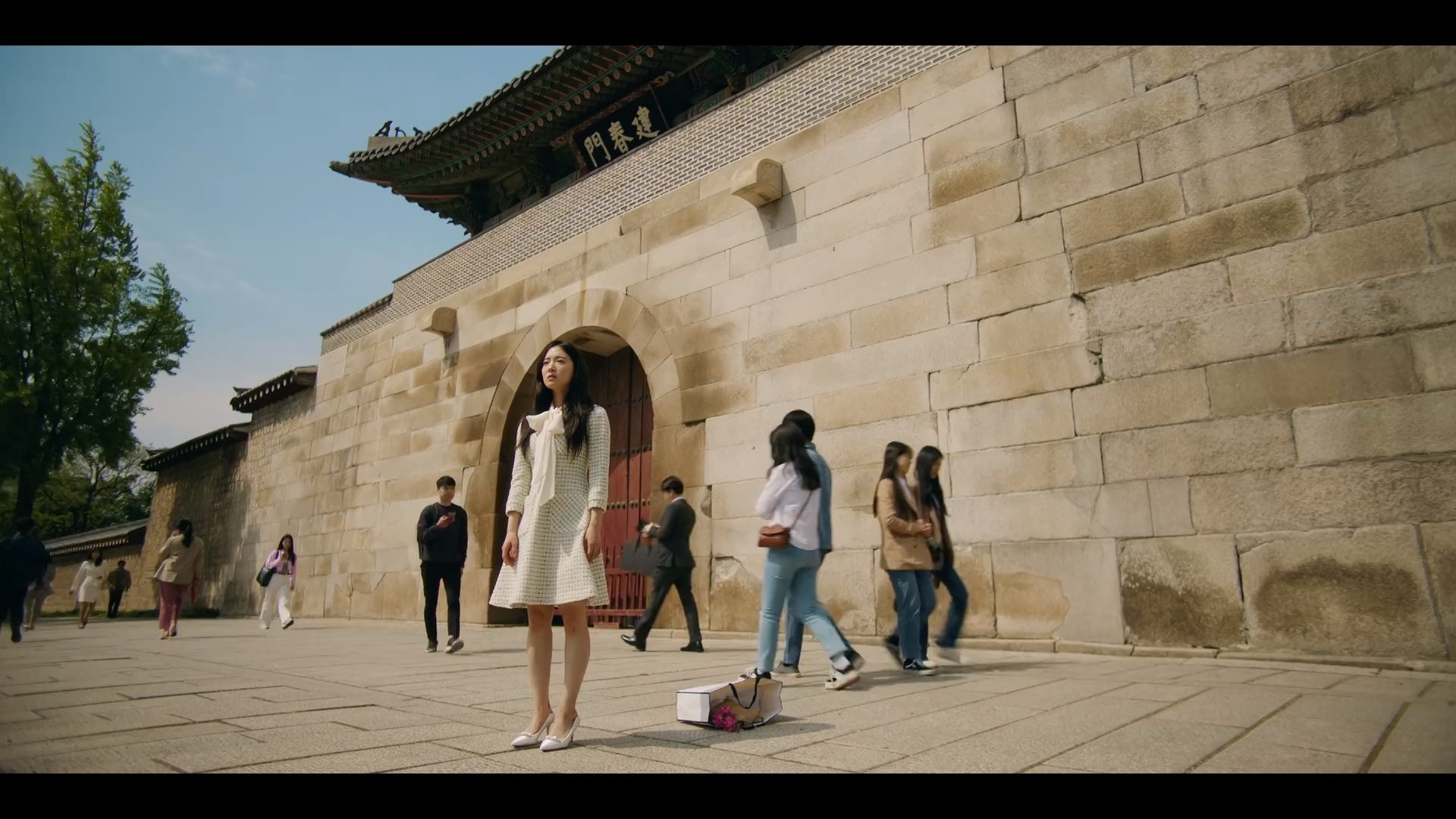


![[2022 Year in Review] The Bean Count](https://www.dramabeans.com/wp-content/uploads/2022/11/beancount_2022.png)

Required fields are marked *
Your email address will not be published. Required fields are marked *
1 ktbrods
September 21, 2008 at 5:54 PM
Mebbe I'll just wait until you make a decision....(argh...too.. much... finance... and Chinese homework...)
Thanks for the recap, I was curious, but didn't want to waste time watching...
Required fields are marked *
2 akg
September 21, 2008 at 6:01 PM
hope you end up enjoying it! *crosses fingers*
enjoyed first ep but for future eps will need some sorta summary/commentary to complement my not so perfect korean..
thanks for this recap!
Required fields are marked *
3 Jill4675
September 21, 2008 at 7:19 PM
Agree about too much time on childhood, which delayed what I hope will be my eventual involvement in the story! But I love Jang Hyuk and Kim Min Joon. They certainly have the acting chops to make their characters interesting, and Jang Hyuk has an undeniable comedic talent in addition to his impressive dramatic skills. I've got my fingers crossed for Episode 2. BTW, I like the camera work and the background music...both first-rate. ;)
Required fields are marked *
4 choram
September 21, 2008 at 7:22 PM
I already plan on not picking this up to watch so I'll follow your recaps if you decide to do them. I only have a passing interest in it so far from what you've described. Thanks!
Required fields are marked *
5 fizzle
September 21, 2008 at 8:04 PM
i've been waiting to hear someone say SOMETHING good about Tazza. "I'll admit I enjoyed it overall" is good enough for me! I'll wait to read your recap but I have now been re-excited :D
Required fields are marked *
6 tambok
September 21, 2008 at 9:15 PM
I had hopes that you will take up Tazza and you did! many many thanks....
(fingers-crossing that you will continue....)
Required fields are marked *
7 o-cha
September 21, 2008 at 9:42 PM
I hope you'll like it enought to continue recapping.
I like episode 1 but I don't love it..hopefully things will pick up in later episodes. But so far so good... and you're right about Jang Hyuk..he can do comedic lines well.
Required fields are marked *
8 Lovemoon
September 22, 2008 at 1:10 PM
Well, I always love to watch this kind of drama/movie. HK drama loves to come out this kind of drama series (sorry, I didn't know the english titles). The American movies that I remember are Ocean Eleven and 21. This is the first one that I watch Korean version. Ep. 1 didn't disappoint me. Jang Hyuk is pretty good in his character as a bad guy, treating, ... The first drama that I watched with him as the main character is the Robbers which I enjoy watching him on that drama as well. I will be happy if the drama having a lot of card tricks, romance, game of mind (Japanese drama/movie will be good at game of mind)...For me, I will keep watching. At least up to ep 4 or 5 before we can tell it is worth to continue. Hope to chit chat with you on the next ep.
Required fields are marked *
9 luvanimemt
September 22, 2008 at 6:18 PM
Oh, the little boy who plays Go-ni in the flashbacks is the same boy who played the younger Damdeok in Tae Wang Sa Shin Gi. How weird. I'm interested in Tazza, but I also need to know if the next couple of episodes are good. And about the flashbacks, isn't East of Eden's first couple of episodes take place in the past? Maybe I heard wrong.
Required fields are marked *
10 Jill4675
September 27, 2008 at 9:24 AM
I really like Tazza though I need to confess I'm a huge Jang Hyuk fan and KMJ is also one of my favorites. While waiting for more Tazza, I checked out the first five episodes of EOE. Overdone doesn't begin to describe it! The acting (?) consists of either screaming or crying. Yeah, I know that's common in kdramas, but this is way too much. As a result, I felt virtually no involvement in the story or emphathy with the actors. Those first five episodes are all flashback/set up the story stuff and it's just not very well done. Tazza succeeds with much better acting, much better musical score, great camera work...looks like a winner so far!
Required fields are marked *
11 mai
October 16, 2008 at 5:47 PM
iono about you but i love this show!!! i think it's one of the best show this year!!
Required fields are marked *